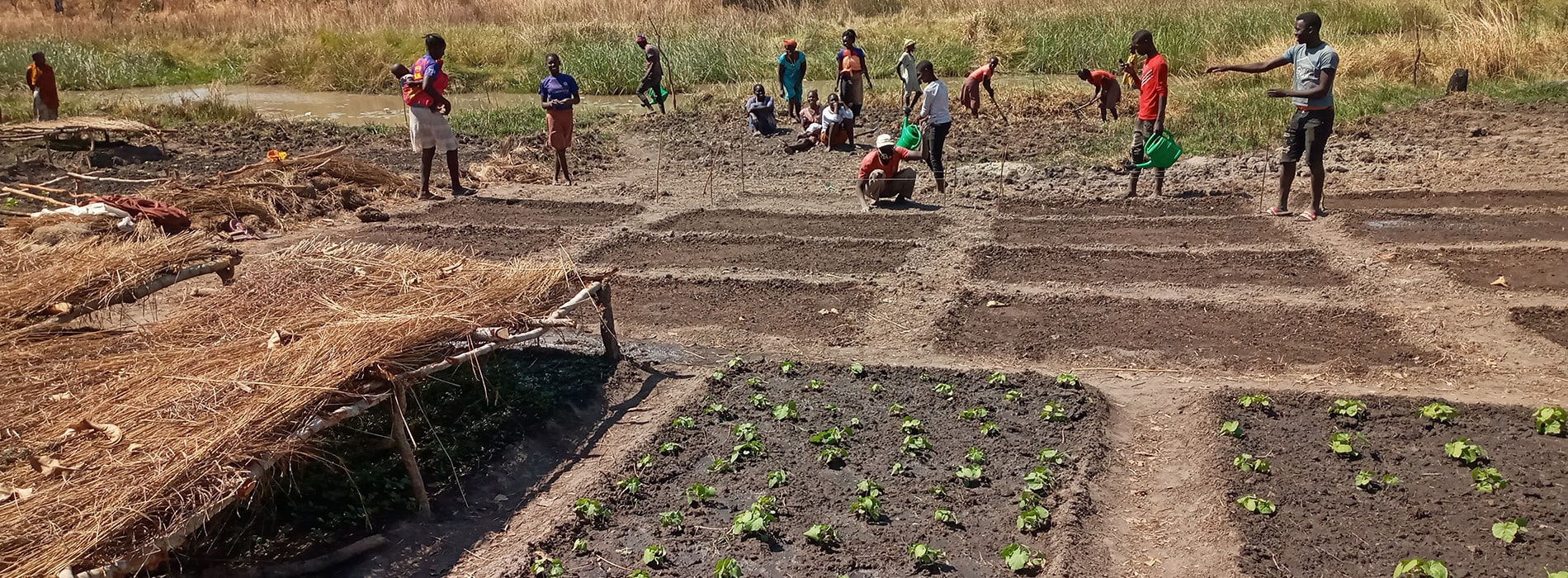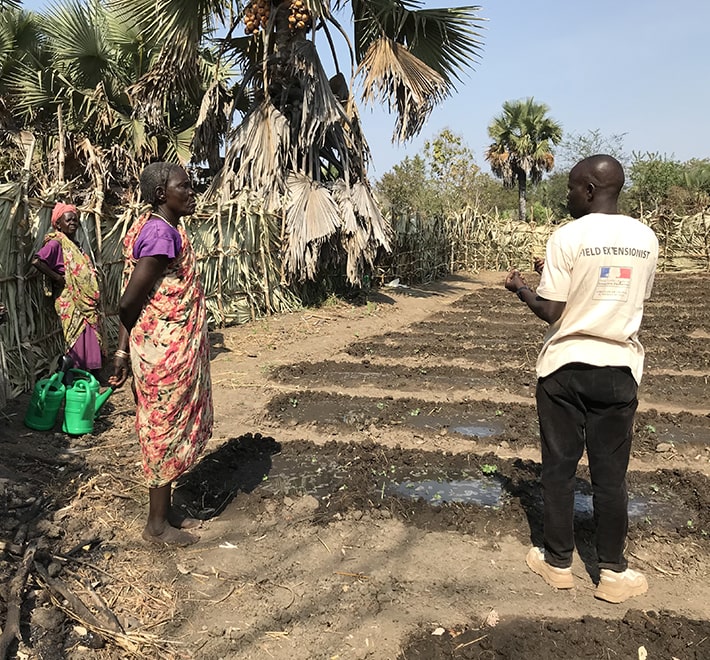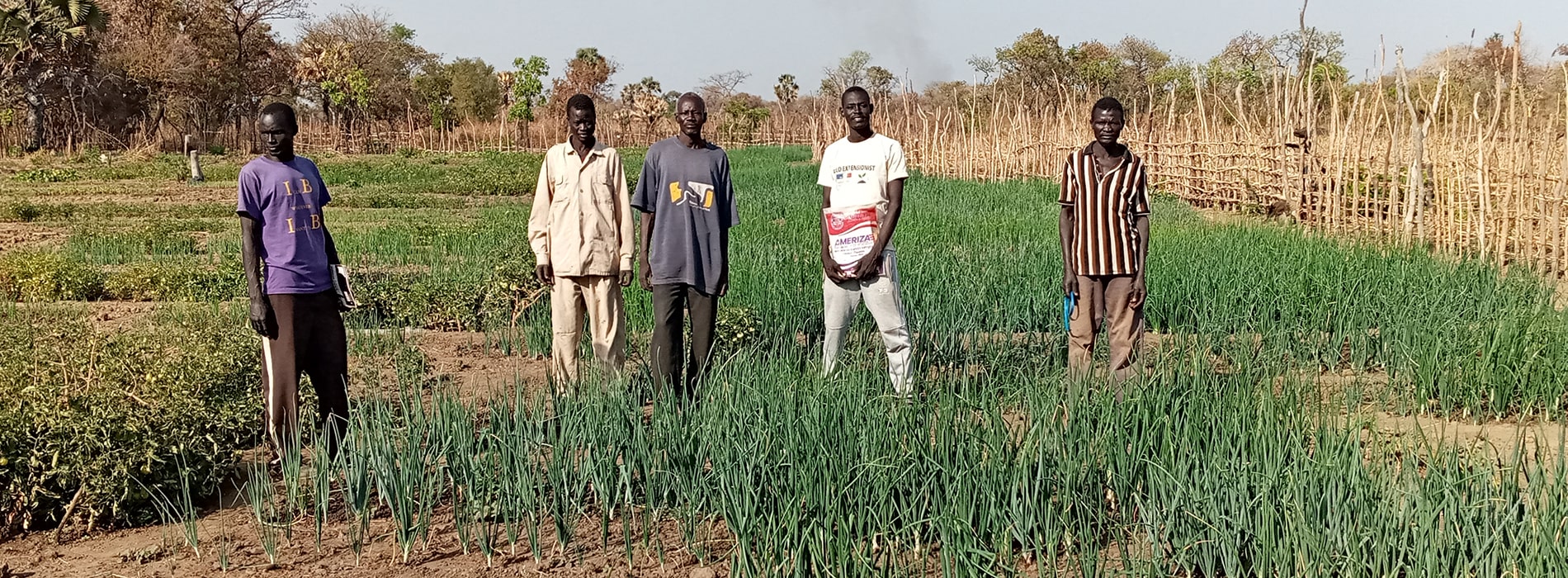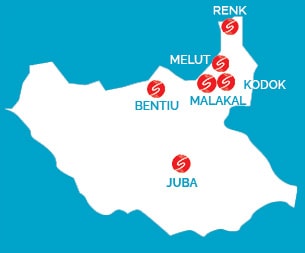In the youngest country of the world, out of the 11.2 million South Sudanese living in the country, 8.3 million need humanitarian assistance or protection.
The prolonged nature of the conflict has led to an increased need for resources related to water, sanitation and hygiene (WASH), as well as food security and livelihoods (FSL). The increased need for basic resources is aggravated by the recurrence of natural disasters, especially floods and droughts, which destroy homes and undermine the livelihoods of the population – leading to more displacement.
In Raja County, in Western Bahr el-Ghazal State, communities rely on agriculture and fishery. In order to address the consequences of droughts and floods, SOLIDARITÉS INTERNATIONAL contributed to the improvement of food security and livelihood for 2,400 families, through the support of the Comité Interministériel de l’Aide Alimentaire (CIAA).
In order to halt the negative outcomes, crop and vegetable seeds, tools, and means of transportation were distributed to local farmers. Trainings were also conducted by food security and livelihoods specialists on sustainable agricultural practices and best post-harvest techniques.
In order to ensure the effectiveness of the project, SOLIDARITÉS INTERNATIONAL consulted the communities, farmers groups and local technical experts, prior to the start of the activities, to select the most locally adapted seeds and tools and meet people’s preferences. Seeds (including sorghum, groundnut, eggplant, tomato, pumpkin, etc.) were purchased through local contractors and distributed to the communities in August 2021.
Following the distributions, part of the seeds was sowed in demonstration plots located near water sources and easily accessible to communities.
South Sudan
Context and action- 12.44 million inhabitants
- 191th out of 191 countries on the Human Development Index
- 388.560 people helped

SOLIDARITÉS INTERNATIONAL worked with 19 food security and livelihood trainers from Raja County who delivered technical trainings to 105 farmers groups on sustainable agronomic practices and post-harvest management techniques. Field trainers also conducted weekly visits to the demonstration plots to monitor seed progress and provide technical guidance to farmers.

Hassan, who owns a small farm near the house where he lives with his family of 8, is one of the farmers that benefitted from the support of SOLIDARITÉS INTERNATIONAL through CIAA funding.
His family received crops and vegetable kits, composed of sorghum, groundnut, tomato, eggplant, onions, okra, carrots, and amaranth. They also received a tool kit composed of a rake, a hoe and a locally made axe. He is very satisfied with the seeds and tools distributed and he shared with SOLIDARITÉS INTERNATIONAL the importance for him and his family to have access to productive inputs to restore their livelihoods, as most of their items were lost or stolen during the war that affected the Raja area until 2018.

“The intervention supported by CIAA has been successful” confirms Dania Al Sharafi, SOLIDARITÉS INTERNATIONAL’s Country Director in South Sudan, “more than half of the respondents reported an increase in their harvest”. Beneficiary communities report that they were better able to cover their family needs. In addition, the group distribution methodology boosted intra communal support, solidarity and knowledge sharing.

